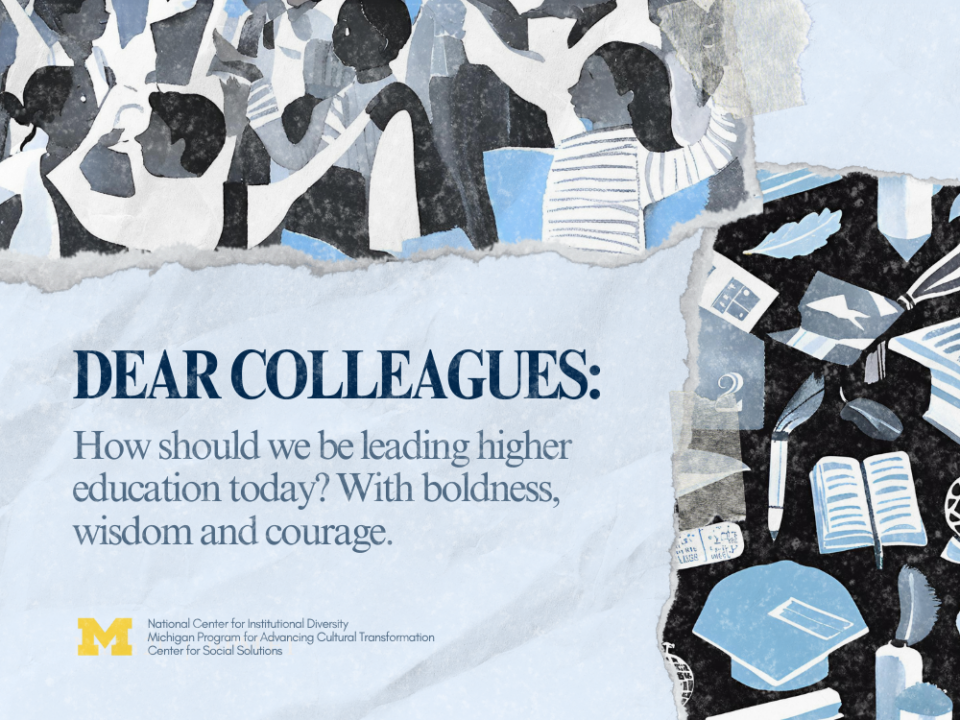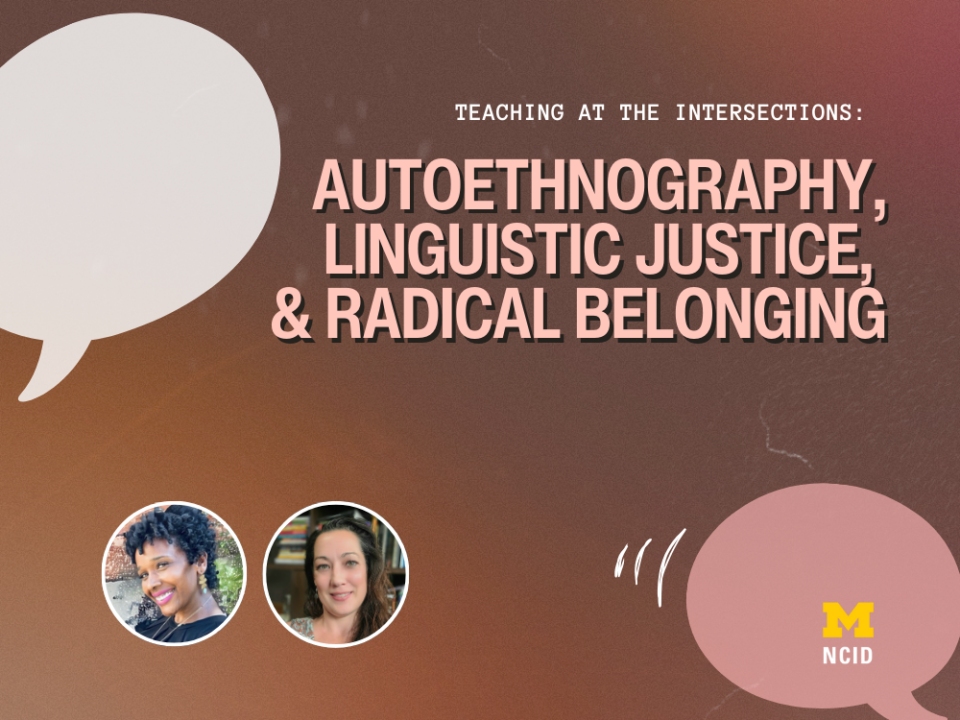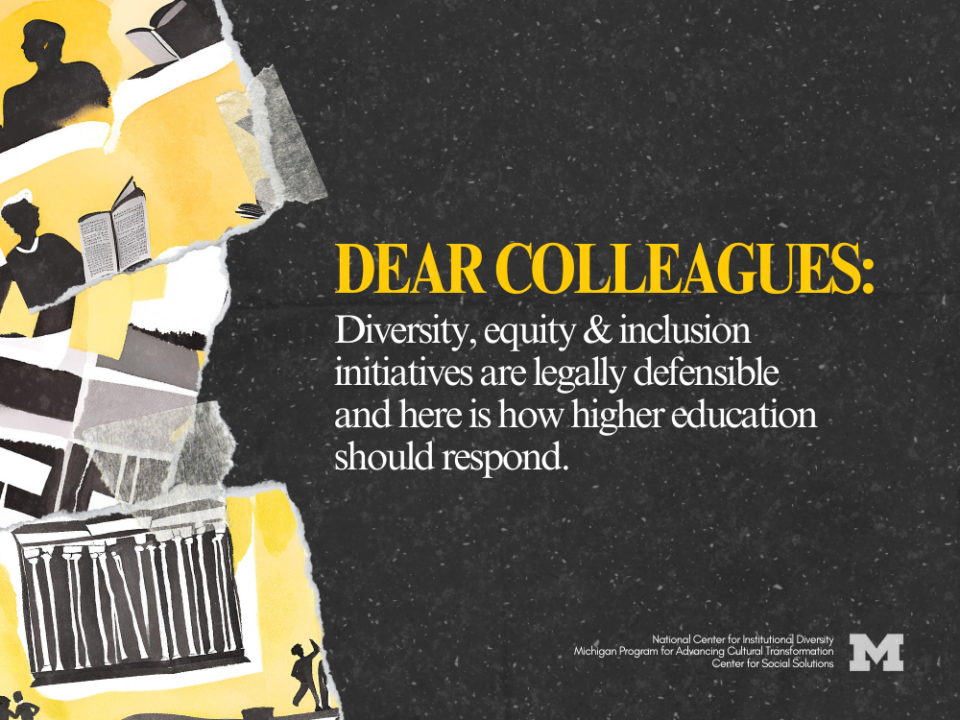- About
- News
- Events
- Initiatives
- Anti-Racism Collaborative
- Change Agents Shaping Campus Diversity and Equity (CASCaDE)
- Diversity Scholars Network
- Inclusive History Project
- James S. Jackson Distinguished Career Award for Diversity Scholarship
- LSA Collegiate Fellowship Program
- University Diversity & Social Transformation Professorship
- Publications & Resources
- About
- News
- Events
- Initiatives
- Anti-Racism Collaborative
- Change Agents Shaping Campus Diversity and Equity (CASCaDE)
- Diversity Scholars Network
- Inclusive History Project
- James S. Jackson Distinguished Career Award for Diversity Scholarship
- LSA Collegiate Fellowship Program
- University Diversity & Social Transformation Professorship
- Publications & Resources
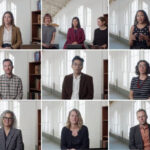
Perspectives on Intersectionality
March 28, 2024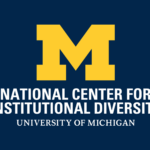
Anti-Racism Graduate Research Showcase 2024
April 2, 2024IHP-EIHS Symposium: Approaches to Oral History and the Work of Inclusive History
April 19, 2024
12:00 - 2:00pm
Location
Tisch Hall
435 S State St
Ann Arbor, MI 48109
Presented by
- Inclusive History Project
- Eisenberg Institute for Historical Studies
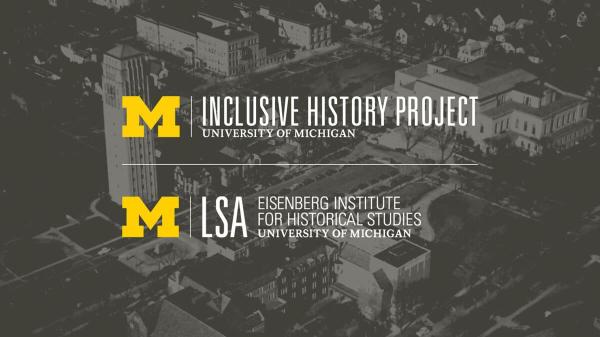
CART and sign language interpretation will be provided during the in-person event, and CART will be available for virtual participants. Presenters will use microphones. A recording will be available after the event. Additional event details and accessibility information can be found at the registration links above.
The rubric of “inclusive history” has achieved a common currency. Today, you can find books, articles, websites, and university policies dedicated to its practice, including a large and ambitious Inclusive History Project (IHP) right here at U-M. Less clear is what this rubric has come to signify and enable over time. What values, methods, and practices bind the groundswell together?
This symposium will explore such questions through the lens of oral history. Drawing on the perspectives of three scholars in different fields, we will explore the potential uses of oral history work for projects that are public facing, DEI-centered, and explicitly reparative. How does the practice of oral history change the ways we think about our audiences, our work with community partners, our research, and the potential impacts of our scholarship?
Speakers
- Camron Amin (Professor of Middle East and Iranian Diaspora Studies; Director of Research, Inclusive History Project; University of Michigan-Dearborn)
- Alexis A. Antracoli (Director, Bentley Historical Library, University of Michigan-Ann Arbor)
- Lorena Chambers (Postdoctoral Research Fellow, Inclusive History Project, University of Michigan-Ann Arbor)
- Jay Cook (moderator; Professor of History and American Studies; Director of Research, Inclusive History Project; University of Michigan-Ann Arbor)


